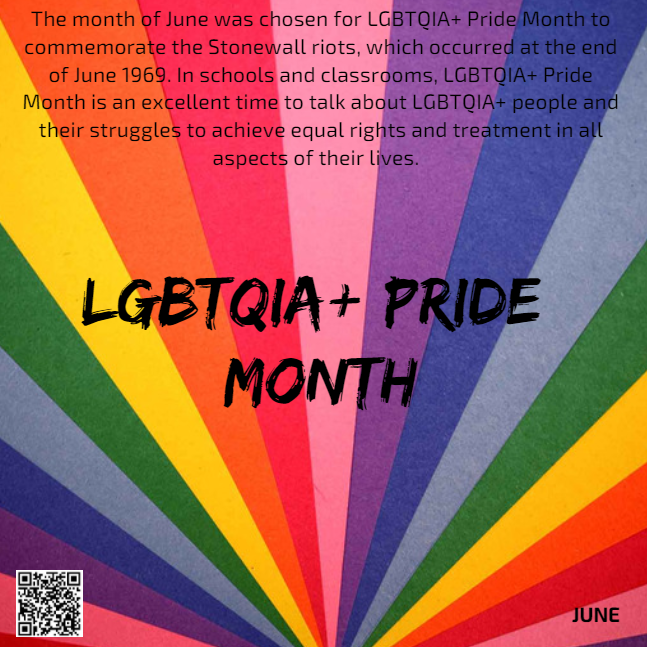The Origins of Pride Month
Pride Month is an annual event celebrated every June, dedicated to honoring the LGBTQ+ community and their struggles for equal rights. The roots of Pride Month date back to the Stonewall Riots in 1969, which marked a significant turning point in the fight for LGBTQ+ rights. The Stonewall Inn in New York City was a popular gathering place for the LGBTQ+ community. On June 28, 1969, a police raid at the Stonewall Inn sparked a series of spontaneous demonstrations, which became known as the Stonewall Riots. These events ignited a movement that would eventually lead to the establishment of Pride Month.
The First Pride March
One year after the Stonewall Riots, on June 28, 1970, the first Pride March took place in New York City. This march was organized by activists to commemorate the anniversary of the riots and to demand equal rights for the LGBTQ+ community. The event was initially called the Christopher Street Liberation Day March, named after the street where the Stonewall Inn is located. The march was a groundbreaking moment in LGBTQ+ history, as it was one of the first instances where the community came together to publicly assert their rights and visibility.
Expansion of Pride Celebrations
Over the years, the concept of Pride spread across the United States and eventually around the world. By the mid-1970s, cities such as Los Angeles, Chicago, and San Francisco were hosting their own Pride events. While the first marches were more focused on political activism, over time, Pride evolved into a celebration of LGBTQ+ culture, identity, and community. Today, Pride Month is observed globally, with parades, festivals, and events that celebrate diversity and promote acceptance.
Read also:The Newest Dairy Queen Blizzard Of The Month A Sweet Treat You Wont Want To Miss
Official Recognition of Pride Month
While Pride events were held in various cities for decades, it wasn't until 1999 that President Bill Clinton officially declared June as Gay and Lesbian Pride Month in the United States. This was a significant milestone in the recognition of LGBTQ+ rights at a national level. In 2009, President Barack Obama expanded the designation to Lesbian, Gay, Bisexual, and Transgender Pride Month, further acknowledging the diverse community and their contributions to society.
The Importance of Pride Month
Pride Month holds immense significance for the LGBTQ+ community and their allies. It serves as a reminder of the struggles and triumphs of the community throughout history. Pride Month is a time to celebrate diversity, promote equality, and raise awareness about issues affecting LGBTQ+ individuals. It also provides an opportunity for allies to show their support and commitment to creating an inclusive society where everyone can live authentically and without fear of discrimination.
Pride Month in 2024
As we celebrate Pride Month in 2024, it's important to reflect on the progress that has been made and the challenges that still exist. The past few decades have seen significant advancements in LGBTQ+ rights, including marriage equality and increased visibility in media and politics. However, there are still ongoing battles, such as fighting discrimination, addressing mental health issues, and advocating for the rights of transgender and non-binary individuals. Pride Month 2024 is a time to honor the achievements of the past while continuing to push for a more inclusive and equitable future.
Global Pride Celebrations
Pride Month is celebrated in various ways around the world, with each region adding its unique cultural flair to the festivities. In cities like Sydney, London, and São Paulo, Pride parades attract millions of participants and spectators, creating vibrant and colorful celebrations that showcase the diversity of the LGBTQ+ community. These global events not only celebrate identity and pride but also serve as platforms for advocacy and awareness, highlighting the issues faced by LGBTQ+ individuals in different parts of the world.
The Role of Corporations in Pride Month
In recent years, corporations have increasingly participated in Pride Month celebrations, often through sponsorships, partnerships, and public displays of support for the LGBTQ+ community. While some view corporate involvement as a positive step towards inclusivity, others criticize it as "rainbow capitalism," where companies are seen as profiting from a cause without truly supporting it. It's important for businesses to move beyond performative actions and demonstrate genuine commitment to LGBTQ+ rights through policies, practices, and ongoing support.
Embracing Intersectionality in Pride
Pride Month is not only about celebrating LGBTQ+ identity but also embracing the diverse experiences within the community. Intersectionality acknowledges that individuals have multiple, overlapping identities that affect their experiences and how they navigate the world. During Pride Month, it's crucial to recognize and uplift the voices of marginalized groups within the LGBTQ+ community, such as people of color, disabled individuals, and those from various socio-economic backgrounds. Embracing intersectionality ensures that Pride is inclusive and representative of all identities.
Read also:A Look Into The Bond Between Kim Porter And Tupac
The Future of Pride Month
Looking ahead, Pride Month will continue to evolve as society progresses towards greater acceptance and understanding of LGBTQ+ issues. The future of Pride involves not only celebrating identity but also advocating for systemic changes that promote equality and inclusion. As new generations join the movement, Pride Month will reflect their unique perspectives and challenges, ensuring that the fight for LGBTQ+ rights remains dynamic and relevant. Ultimately, Pride Month is a testament to the resilience and strength of the LGBTQ+ community and their allies, and it will continue to inspire and empower individuals for years to come.


